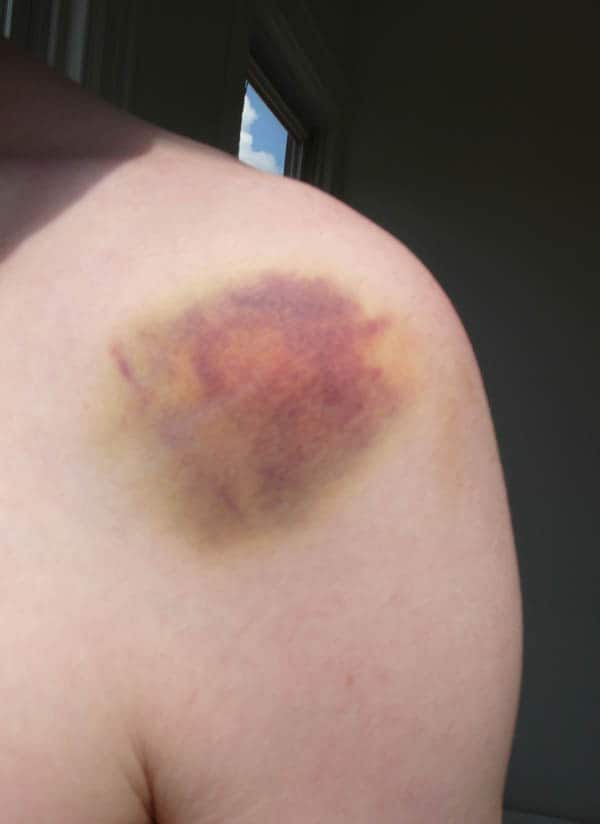By Lori Beyard
I would like to talk about an issue that has been coming across my desk a lot lately. That issue is: People refusing to give out their medical history or list their medications. People often will write a huge “NO” across the areas reserved for medication or medical problems. I realize that we, as a society, need to protect our personal medical information. But clients don’t realize why we, who are not considered medical personnel, are asking for this information. Therapists are just as guilty of not understanding why they need this information. Therapists will glance at the intake form and not pay attention to what that client has written down.
Let’s say a client comes in and they list some form of blood thinners on their list of medications. We need to know this since it will affect how we proceed with their session. Even someone on baby aspirins everyday can have a tendency to bruise easily since blood thinners do what? Exactly! They help to thin the blood. This makes it very easy for you to bruise the client when doing deep work. It can also turn a thrombus, which  is a stationary blood clot, into an embolus which is then free to head towards the lungs or heart. That can be pretty scary right? I had a client not too long ago that came in and showed me some bruises she had acquired after her deep tissue massage. When I asked if she was on any medications, she reluctantly admitted to being on an aspirin regimen. She didn’t put that on her form because she felt we shouldn’t be privy to that kind of information. Had the therapist known, he or she would not have done a deep tissue massage since that is not recommended for those on blood thinners.
is a stationary blood clot, into an embolus which is then free to head towards the lungs or heart. That can be pretty scary right? I had a client not too long ago that came in and showed me some bruises she had acquired after her deep tissue massage. When I asked if she was on any medications, she reluctantly admitted to being on an aspirin regimen. She didn’t put that on her form because she felt we shouldn’t be privy to that kind of information. Had the therapist known, he or she would not have done a deep tissue massage since that is not recommended for those on blood thinners.
 How about pain medications and muscle relaxers? Think about it for a minute. One will inhibit pain signals to the brain and the other will chemically induce the muscle to relax. How does this affect your massage? Well in the case of the first one, you will not be able to accurately let the therapist know if they are going too deep or are hurting you since your brain is telling you “it’s all good!” As for the muscle relaxers, if the therapist determines that you need stretches added into your session, your joints and muscles will not be able to accurately tell when they are stretched too far which may cause another issue you don’t want to have with muscle fibers, tendons or ligaments. A session can also leave you feeling more drained than usual after a massage since these kinds of medications can make you tired and loopy to begin with. When taking medications like these, you really should take them after the session and not before, or if you must, take them a couple of hours ahead of your appointment time so they have had time to work through your system and not be as strong.
How about pain medications and muscle relaxers? Think about it for a minute. One will inhibit pain signals to the brain and the other will chemically induce the muscle to relax. How does this affect your massage? Well in the case of the first one, you will not be able to accurately let the therapist know if they are going too deep or are hurting you since your brain is telling you “it’s all good!” As for the muscle relaxers, if the therapist determines that you need stretches added into your session, your joints and muscles will not be able to accurately tell when they are stretched too far which may cause another issue you don’t want to have with muscle fibers, tendons or ligaments. A session can also leave you feeling more drained than usual after a massage since these kinds of medications can make you tired and loopy to begin with. When taking medications like these, you really should take them after the session and not before, or if you must, take them a couple of hours ahead of your appointment time so they have had time to work through your system and not be as strong.
Massage also will increase blood flow. This can make any medication the client is taking work their way through the system more quickly. A diabetic specifically injects insulin into subcutaneous tissue. They inject it into that type of tissue because it will release the medication slowly over time. If they injected it into muscle the medications would disperse much more quickly. The therapist should check in with their client and let them know that they need to check their blood sugar levels sooner than they normally do and to make sure that they have something handy in case they have an issue with their blood sugar levels. Therapists also need to avoid any injection sites for medication, period, no matter the medicine injected. It is a superb idea to educate ourselves on what the top ten most popularly prescribed medicines are and how what they do, may or may, not alter a session.
Various medications and conditions will let us know what can and cannot or what should and should not be done during that session. It is very important that we know our client’s private medical information. So the next time a client refuses to fill out an intake form, it is our duty to explain the necessity of having that
 information. The client does have the right to know, legally, how that information will be used after they give it to us. Educate the clients as best you can. Sometimes we don’t realize how much we can affect the body as a whole with what we do. Think about it!
information. The client does have the right to know, legally, how that information will be used after they give it to us. Educate the clients as best you can. Sometimes we don’t realize how much we can affect the body as a whole with what we do. Think about it!










Comments are closed.